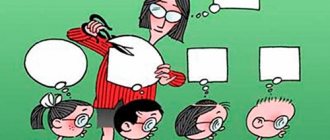From time immemorial, there has been a division of people into men and women in the world. It is not surprising that the consolidation of certain norms and standards in human behavior was based on this. A man is a strong and brave warrior, breadwinner and guardian. A woman is a keeper of the hearth, a caring mother and an affectionate wife. It is not for nothing that even in the modern world many men and women compare each other to aliens - they seem so different and sometimes alien in the process of communication.
But time passed, and as technology developed, the amount of time spent on meeting the basic needs of the floors noticeably decreased. As a result, step by step, humanity has come to the current picture of the world, where gender differences are no longer based only on gender and where, instead of two genders, more than 60 new types have been formed in just a few years.
What are gender stereotypes, how have they changed with the development of society and how do they influence our daily lives, said psychologist-sexologist Irina Alexandrova .
From the personal archive of Irina Alexandrova /
The problem of gender stereotypes in society
Gender stereotypes are now commonly referred to in connection with sex discrimination. And this is quite bad because it creates the wrong idea about the problem. The problem with stereotypes is not that they create a misconception about women, thereby providing grounds for discrimination.
The problem is much broader. Such established ideas equally distort the opinion of both women and men, driving people into the narrow framework of norms and rules, imposing on them a certain way of action. A gentle, sensitive man will probably face a lot of negativity precisely because his behavior differs from the prescribed one. But for some reason no one considers this discrimination.
Masculinity and femininity
Masculinity and femininity are determined by our gender identity and are directly related to our ideas about ourselves and others. It was these two concepts that laid the foundation for gender stereotypes. So that you do not have questions about these terms, I will explain.
Masculinity is a complex of bodily, mental and behavioral characteristics that are considered masculine. Masculinity in Russian is different from manliness. The phrase “courageous woman,” for example, characterizes not a woman’s masculinity, but the resilience of her character.
Femininity is equal to the word femininity. This is a set of qualities such as sensitivity, tenderness, softness, sacrifice and others. The concept of femininity includes both biological and social and cultural elements.
Male roles, female roles
Gender stereotypes have existed as long as humanity has existed. Surely they changed: it is unlikely that during the times of matriarchy, ideas about the roles of men and women in society were the same.
And even now, some nationalities living quite isolated are sincerely surprised when they are told that gender determines not only physical strength, but also character and way of thinking. A clear gender division of roles is the prerogative of large social groups that can afford it. And if every spear, every sword counts, if working hands are needed, no matter who they belong to - whether a man or a woman - there is no time for prejudice.
But this is the exception rather than the rule. Our culture has inherited the traditional separation of masculine and feminine principles, a strict division into soft and hard, active and passive, yin and yang.
Even the philosophers of Ancient Greece wrote about the differences between men and women, endowing them with diametrically opposed traits. A man is strong, active, reasonable, logical, domineering, a woman is weak, passive, emotional, subject to impulses, submissive. And these ideas about the psychology of the sexes turned out to be surprisingly stable. Centuries passed, one political system replaced another, traditions and rules, etiquette and religion changed. But gender stereotypes remained as rock-solid as rocks.
Even now, when no one is surprised by either a woman’s right to work or her right to vote and be elected, the traditional formula “Man is the head, woman is the neck” is still in use. And this does more harm than good.
"Disappearance" of the gifted
What definitely affects girls today is the lack of sufficient support from adults and peers. Research by sociologists and psychologists increasingly confirms a simple conjecture: women are less likely to become presidents and less represented in business and science precisely because from childhood they are denied intelligence, leadership and a bright future, and their life prospects are often limited to home and family.
The beginnings and talents of girls are ignored, they are not believed in their talent - or even real obstacles are created on the path to knowledge, as in the case of the Perm gymnasium. There is a phenomenon of “disappearance” of gifted women: we see many talented girls in preschool institutions and schools, but at each subsequent stage of the “university-work-career growth” chain there are fewer and fewer women. They settle in low-prestige jobs or completely disappear from view, withdrawing into their family and personal life.
It is interesting that even those virtues that girls obviously possess (such as diligence and diligence, for example) are not sufficient for many to become leaders. Or, as in our case, to enter a prestigious school. In boys, even if they “fall short” yet, they find hidden potential and enormous opportunities.
Photo: Eduard Konienko / Reuters
In our country there are also studies of the mechanisms of gender socialization in the Russian context. For example, sociologists from the Higher School of Economics Olga Savinskaya and Anastasia Cheredeeva conducted a series of interviews and found out that ideas about masculinity and femininity, about what girls and boys “should” do and how to behave, are instilled from a very early, unconscious age - even in preschool institutions where both boys and girls are offered extremely narrow boundaries of “normality” and monotonous roles (roughly speaking, “snowflakes and pirates”, and not vice versa). Little girls are especially vulnerable in this system - they are required to constantly seek approval from others, be as obedient and quiet as possible, and be interested in a very limited number of subjects and topics. Such monotony can interfere with the individual development of children, especially if the system is also supported at home.
It is also impossible to ignore the research of HSE sociologist Olga Isupova, a senior researcher at the Institute of Demography at the National Research University Higher School of Economics. She interviews girls from “good families” - students and graduates of prestigious Moscow gymnasiums and lyceums, as well as their parents and parents of schoolchildren from prestigious educational institutions in St. Petersburg, Nizhny Novgorod and Solikamsk. Pilot interviews showed that girls from “good families” in Russia are required to do almost the impossible: education, beauty, good manners, a successful career, family orientation, “extraordinary fortitude” - and all this at the same time.
High expectations from parents are reinforced by societal stereotypes and the high standards set for girls in schools. They are constantly being evaluated, forced to live up to new and new ideals, and harshly criticized for the slightest offense. The variety of requirements and the reluctance to single out priority and optional ones from them neuroticizes high school students, instills a fear of mistakes and leaves them with an extremely limited space of freedom, not to mention time for rest and their own hobbies.
At the same time, the “bright future” for which all efforts are being made is extremely vague. Parents themselves do not know what to expect for their daughters in the future. It turns out that girls often have to make extra efforts in the face of unclear tasks and overwork for the sake of unclear prospects and other people's values.
Stereotypes in action
For the first time, people became interested in the problem of gender stereotypes in the 70s of the last century. Then scientists wondered how true it was to what seemed to everyone an obvious fact. Why is everyone sure that things are like this? Is this the result of an objective state of affairs or simply bias?
The first studies of gender stereotypes revealed an interesting pattern.
As a result of the surveys, it turned out that men are a priori considered more competent and professional, their successes were explained by a high level of knowledge and good training, and career growth was assessed as a natural consequence of such advantages. At the same time, women, according to the respondents, either achieved success by accident, or deliberately sought to occupy a higher level in the social or professional hierarchy, making additional efforts to do so. This is exactly how gender stereotypes manifested themselves. Examples of such perceptual distortions are numerous. During the experiment, observers were asked to evaluate the students' level of preparation. Given equal competence, men's answers were always rated higher than women's, although in fact there was no difference.
The term "gender" as a social category
This term was first introduced into practice in 1975. It arose as a result of the differentiation of social, cultural and constitutional aspects determined by the gender of the individual and the difference in their qualities.
Definition 2
Gender is a sexual, socio-biological characteristic that reflects the socio-psychological signs of personality development, determined by its gender.
The introduction of this term reflects the presence of psychological differences between the sexes.
Bias as the norm
However, this social phenomenon also has a downside. The same experiment with a survey of students showed that if the respondents are equally incompetent, then observers tend to inflate the scores of women, finding men less knowledgeable in comparison with them.
By placing excessive demands on the stronger sex, society gives them a head start, but judges them more harshly for any mistake. This is the other side of the coin. While saying that modern gender stereotypes disadvantage women, we cannot ignore the fact that they also disadvantage men. It’s just that bias manifests itself in the assessment of other factors.
If society has a hard time forgiving a woman for success, a man will never be forgiven for failure. Social stereotypes require that a young man win victory after victory; in any other case, he will be considered a loser.
Consequences for society
In politics
In many countries, the percentage of women's participation in politics is quite low. As a result, it is highly likely that a girl who promotes sound ideas simply will not get into parliament. This allows sexist and discriminatory laws to be passed. There is no one to protect the rights of girls.
In economics
The career glass ceiling for women is not a myth. If the employer has a choice of who to hire - a girl or a guy - they will hire the owner of the Y chromosome, justifying themselves with stereotypes. In addition, women are typically paid lower wages and are less likely to receive promotions and bonuses.
In religion
In many religions, the female sex is still considered unclean. Prominent representatives are Orthodoxy and Islam. In both religions, a woman is almost equated with a demon during menstruation.
She should sit at home and listen to her husband. Her opinion is not taken into account. This all leads to a terrible thing - female circumcision.
In family
Most girls grow up surrounded by constant stereotypes and a patriarchal family model. As a result, they themselves cannot build an equal marriage or find a worthy life partner.
This in turn leads to a relationship with an abuser and the inability to escape domestic violence. The girl thinks that this is normal, that she herself deserved the beating.
In education
From early childhood, the same stereotype is hammered into the heads of boys and girls: boys are stupid, and girls are ideal excellent students who never run around the corridors.
This is dangerous for both sides of the conflict. Guys are considered hooligans by default, while girls are expected to be perfect.
In healthcare
Most diseases are related to gender, at least that's what doctors think. Men associate any disease with an unhealthy lifestyle. Women are treated so that they can then give birth.
Stereotypes from an ethological point of view
The most unusual thing in the current situation is that both men and women really see the world differently. These differences are not drastic, but they exist. In any species, the behavior of males and females differs. Moreover, these differences are not at all where stereotypes expect them to be found. Examples of this are numerous. Let's say the legendary testosterone aggressiveness of males. In relation to homo sapiens, this is precisely what justifies men's tendency to violence.
In fact, intraspecific fights are more of a demonstrative nature, their purpose is only to attract the attention of the female, and not to destroy the enemy. This is the same demonstration as mating among black grouse or ritual dancing among cranes. Otherwise, the males will simply kill each other and the population will die out.
The struggle for leadership looks completely different. Here everything is determined not so much by physical strength and aggressiveness, but by intelligence and willpower. Healthy, angry and stupid are not the best qualities for a leader. This is especially evident in the example of populations whose survival directly depends on joint coordinated actions. Dogs, wolves, well-known meerkats. And in such populations a female leader is not uncommon. But what is natural in nature is indignantly rejected by gender stereotypes.
What can be done
According to the authors of the study, it is difficult to overcome these stereotypes and the imbalance they fuel in the representation of women in traditionally “male” sectors of the economy, but it is possible through comprehensive and consistent measures, including at the state level. Particular attention should be paid to the development of the digital economy, they believe. It is the digital economy that contributes to the achievement of equality between women and men, opening up wide opportunities for online learning, remote work and building a business.
Possible measures include:
- conducting information campaigns encouraging women to be more socially active;
- implementation of equal pay policies;
- creating flexible work opportunities and suitable forms of parental leave for both women and men.
For their part, in order to motivate women to build a career in the digital economy, they offer various educational events and projects. Thus, the Council of the Eurasian Women’s Forum under the Federation Council announced a competition for employers “Development of Women’s Leadership”, the main goal of which is to encourage employers who have successfully won their jobs and support working parents. Google, in turn, launched a series of I'm Remarkable trainings, where women learn to talk about their professional and personal achievements and develop in different areas. More than 1,000 people in Russia have already taken part in the training: employees of Google itself, as well as employees of SAP, Severstal, Unilever and other large companies.
Actors and roles
A paradox arises. When justifying established behavioral models, people refer to natural inclinations, while not paying attention to the fact that in their original form such instincts are realized in a completely different way. Gender stereotypes in society assume that by default the leader is a man and the follower is a woman, without in any way linking leadership issues with mental capabilities. At the same time, in nature it depends purely on personal characteristics and nothing else. The smartest, the most energetic and the most decisive will rule, because this is better for the population. And the gender of the leader is a fact of little significance and of no interest to anyone. Unless, of course, we are talking about a herd of cows, then there is no special need for intelligence there.
Reasons for the emergence of stereotypes
Why did gender social stereotypes arise? There are many theories about this.
Scientists cited social, economic, and historical factors as reasons. The most common theory says that as economic processes became more complex, brute force, which was possessed by men, became increasingly important. If in primitive society the functions performed by both sexes were equally important, then during the transition to sedentism and cultivated agriculture it was men who began to perform an active function.
Construction work and farming required significant force. The same applied to military conflicts, which acquired an organized form, ceasing to be simply a clash between two nomadic tribes.
This theory is confirmed by the fact that it was at the end of the 20th century, when production automation leveled the importance of physical strength, that gender stereotypes in modern society were revised.
Man: myth and reality
If scientists who support this version are right, gender segregation at that stage of development was completely justified. The tribe that has more strong, combat-ready men has a greater chance of survival.
And it is absolutely logical that it was these qualities that were cultivated and instilled during upbringing. Stereotypes about men are familiar to everyone. Strong, confident, active, reasonable, a born fighter and leader, the breadwinner of the family.
The qualities are obviously good. A person with all these virtues is simply a cross between Clark Kent, Albert Einstein and Alexander the Great. There is hardly anyone who would not like to become such perfection. The trouble is that a real man rarely meets the given standards. And, trying to reach the ideal, he develops neurosis, gastritis and chronic depression. Can't cope with the role of breadwinner? Jonah. Physically underdeveloped? Jonah. Can't make a career? Of course he's a loser again!
From childhood, a boy is taught to keep his emotions to himself, not to cry or complain. And then it turns out that the only way for a man to cope with strong emotions is alcohol. All others are prohibited. A real man doesn't cry into his vest, he drinks and solves his problems himself. Such a stereotype of behavior can hardly be considered constructive.
What is expected from a woman
The same applies to women. The image of a “good girl” is also not bad in itself. Friendly, non-conflict, sociable, sympathetic. A caring mother and wife, a hardworking housewife. Surely, in reality, such a woman will make the most favorable impression on others, and this will be absolutely fair. Career aspirations are, of course, good, but they do not distinguish a good person from a bad one. If a girl feels exactly like this, if she is at ease and comfortable within the framework of these ideas, well, that means she is lucky. Her inner sense of self and stereotypes about women will not conflict.
Problems arise when a girl does not meet the given standards. In this case, objectively good, useful qualities - assertiveness, activity, determination - are suppressed and perceived exclusively in a negative way.
Stereotypes are a cause of bias
It is precisely this duality of interpretations and assessments that acts as the main destructive factor. Stereotyping assumes that the same behavior is evaluated differently depending on who exactly performs the action, a man or a woman.
Is the girl crying? She's just very vulnerable and sensitive. Is the guy crying? A wimp and a weakling. Does the girl argue and defend her opinion without agreeing to a compromise? Quarrelsome bitch. Does the guy do the same? He's just confident and determined.
A rating system built not on objective criteria, but on subjective ideas about the correctness of a person’s behavior cannot be correct. This means that the effectiveness of social interaction decreases. People do not do what they know how to do well, but what they consider right, even if it is an order of magnitude worse.
About power and more
Why do stereotypes, if they are so ineffective, still exist?
One of the extremely important factors is the distribution of power. To be a man is to be a leader by definition. Neither intelligence nor strength is needed. You may not achieve anything in this life. All the same, a man automatically takes a leading position in relation to a woman. It is on this principle that gender stereotypes are built in the family, and not only there. The best boss is a man. The best employee is a man. The best organizer is a man. To break this stereotype, to abandon it for a man who, in reality, does not possess such qualities, is to admit himself as a failure.
At the same time, men have a huge responsibility, regardless of whether they are ready for it or not. A person who does not want to be a leader, preferring the position of a follower, gets the reins in his hands and must rule. It's unlikely he'll handle it well. And he will probably feel very, very uncomfortable. It would be much more logical if roles in society were distributed according to personal characteristics, and not according to gender.
But as long as stereotypes rule the world, the situation is unlikely to change for the better.
Definition of gender psychology
Definition 1
Gender psychology is a branch of psychological science that studies the patterns of personal development based on gender.
Gender psychology arose and took shape as a separate branch of psychology relatively recently. It occupies an important place in this scientific direction, since gender and its specificity play a significant role in the development of personality and its basic qualities.
Are you an expert in this subject area? We invite you to become the author of the Directory Working Conditions
Gender psychology actively studies gender relations and stereotypes of social behavior determined by gender. Patterns of social behavior are largely determined by sexual differentiation.










